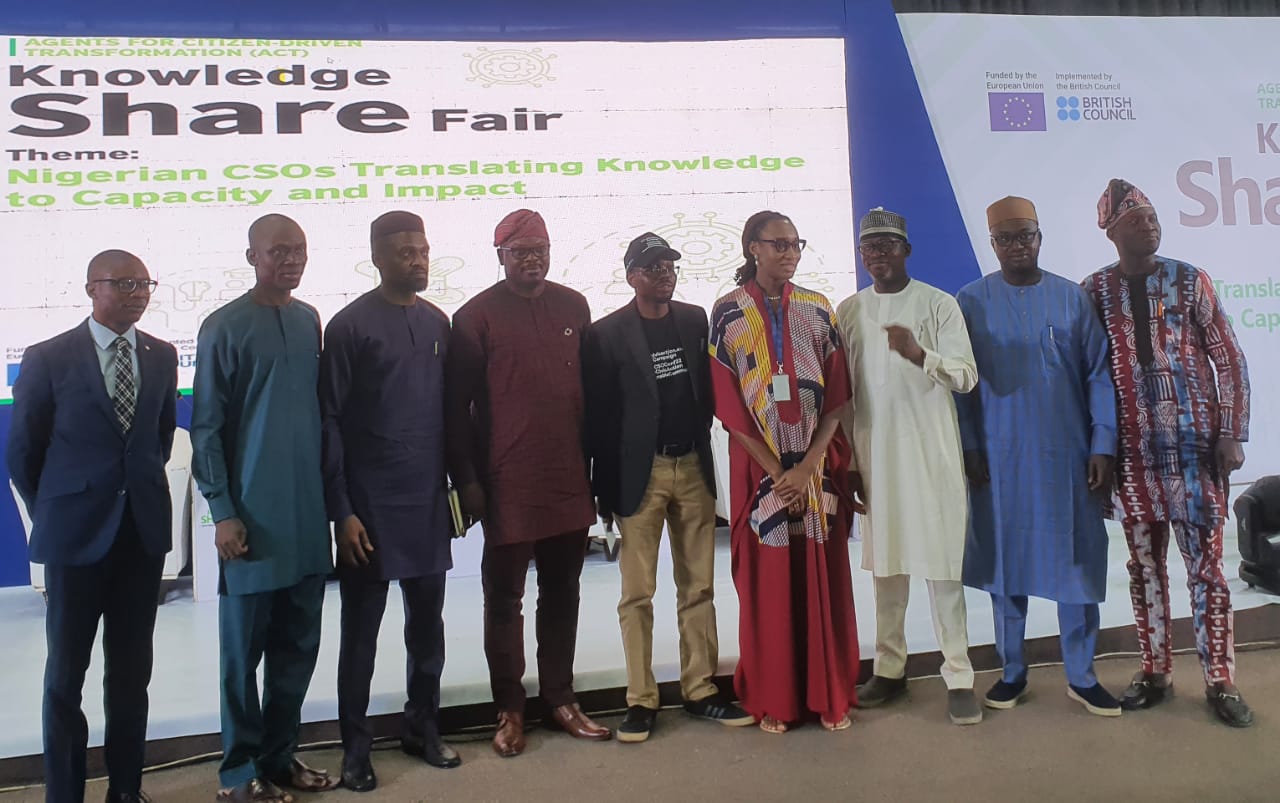…as Eu-British Council launch e-learning platform for CSOs
Ngozi James
Over 200 Civil Society Organisations across ten states have been impacted with the European Union (EU)-funded Agents for Citizen-Driven Transformation (ACT) programme which is designed to strengthen the capacity of CSOs to become more effective agents of sustainable development in Nigeria.
Launced in 2019, the EU-ACT initiative which has a budget of €13.1 million and being implemented by the British Council also focuses on promoting collaboration between CSOs and other stakeholders to create an inclusive regulatory environment for the industry.
So far, the initiative has increased the ability of 202 CSOs to manage their operations, empoweredover 2,800 staff in organizational growth, and trained 690 civil society network leaders in leadership skills, according to a statement signed by Lauratu Umar Abdulsalam, Communication and Media Engagement Adviser, Managing Conflict in Nigeria (MCN) Rule of Law and Anti-Corruption (RoLAC) ACT.
It added that the initiative has provided 86 grants to CSO partners, which have had a good influence on their communities. The regulatory environment for CSOs has also improved, with established self-regulation mechanisms and platforms, as well as enhanced operational efficiency in regulatory bodies like as the Corporate Affairs Commission (CAC) and the Special Control Unit against Money Laundering.
To consolidate on the gains of the ACT programme, the EU launched an e-Learning platform on Thursday at an event, titled “Nigerian CSOs Translating Knowledge into Capacity and Impact,”in Abuja.
The event gathered together over the 200 selected CSOs Capacity Development Providers, government agencies, and other key stakeholders to share their experiences, impact, and lessons learned. It set a learning agenda for improving the capacity and credibility of CSOs in Nigeria.
The Knowledge Management Event also provided a platform to showcase the results, outcomes, and impact of the ACT Programme to a cross-section of stakeholders in the civil society sector. It presented the experiences of the programme as thought leaders in capacity development, shared the impact through the testimonies of beneficiaries, and presented the lessons learnt from the implementation.
Participants were also drawn from development partners, media, academia, private sector players, commercial sector actors, accademia and others involved in the civil society space in Nigeria.

